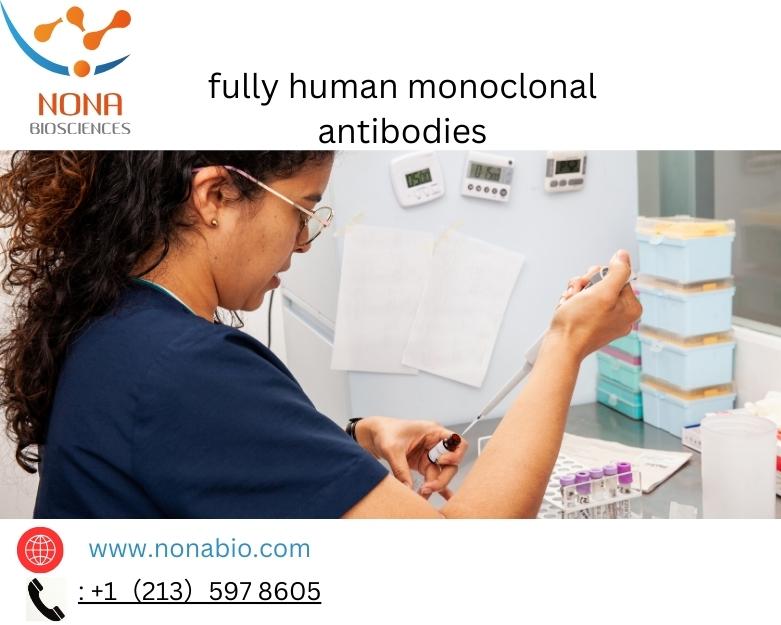This article explores the development, benefits, and impact of fully human monoclonal antibodies in contemporary medicine.
Development of Fully Human Monoclonal Antibodies:
Traditional monoclonal antibodies were originally derived from mouse cells, which, although effective, often led to immune reactions in human patients. To address this, researchers developed chimeric and humanized antibodies, which replaced parts of the mouse antibody with human parts. However, fully human monoclonal antibodies, which are derived entirely from human genes or produced using human antibody-producing techniques, represent the latest in this evolutionary chain. Technologies such as phage display and transgenic mice have been pivotal in these developments. These techniques allow for the generation of antibodies that are completely human, minimizing the risk of immunogenicity while maximizing therapeutic efficacy.
Benefits in Clinical Applications:
The primary advantage of fully human monoclonal antibodies is their reduced immunogenicity in patients. Since these antibodies are entirely human, the patient’s immune system is less likely to recognize them as foreign, reducing the likelihood of adverse immune reactions. This leads to improved safety profiles and enhances the effectiveness of long-term treatments, particularly in chronic diseases.
Moreover, fully human monoclonal antibodies can be engineered to bind with high specificity to virtually any biologically relevant target. This specificity allows for the precise targeting of diseased cells without affecting healthy cells, reducing side effects and improving patient outcomes. This attribute is particularly crucial in the treatment of cancer, where targeted therapy can mean the difference between damaging healthy tissues and exclusively attacking cancer cells.
Current Applications and Future Prospects:
Fully human monoclonal antibodies are currently used in a variety of therapeutic areas. In oncology, antibodies such as pembrolizumab and nivolumab have been groundbreaking in treating various forms of cancer by targeting PD-1, a protein that helps keep immune cells from attacking non-cancerous cells. By blocking PD-1, these antibodies enable the immune system to better target and destroy cancer cells.
In autoimmune diseases, fully human monoclonal antibodies like adalimumab target and neutralize TNF-alpha, a cytokine that plays a key role in inflammatory processes. This approach has been effective in treating diseases like rheumatoid arthritis, psoriasis, and inflammatory bowel disease.
Looking to the future, the potential applications of fully human monoclonal antibodies continue to expand. Research is ongoing into their use in neurodegenerative diseases, allergies, and other chronic conditions. Additionally, as our understanding of disease pathways improves, new targets for these antibodies are continually being identified, broadening the potential for innovative treatments.
In conclusion, fully human monoclonal antibodies are at the cutting edge of therapeutic advances, offering tailored treatments with improved compatibility with human physiology. Their development marks a significant step forward in our ability to treat complex diseases more effectively and with fewer side effects. As technology and science progress, the role of these antibodies in medicine is set to grow, promising a new era of targeted therapy solutions.


